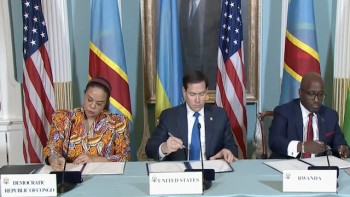The United States economy grew faster than previously thought in the second quarter of 2014, the Commerce Department said on Thursday, August 28, 2014. The latest numbers confirm the signs of a sustainable growth and the continued positive outlook of the US economy. Reacting to the news, President Obama expressed his satisfaction and said that “companies are investing, consumers are spending...There are reasons to feel good about the direction that we are headed"
The growth was fueled by several factors including manufacturing, increased investment by businesses, and foreign trade.
According to the US Department of Commerce,the rate of investment has been unprecedented since the country emerged from the recession, that hit the US and the World five years ago.
As another sign that the economy is doing better, confirming what AroniSmartInvest in Action has been predicting, companies across
all the sectors have forecasted more investment and growth in the second half of 2014.
Corporate profits, jumped 8 percent in the second quarter of 2014.
Also, on Thursday, the Labor Department published solid job numbers. According to the Labor Department, initial claims for unemployment benefits dropped last week by 1,000, to 298,000, helping push the eight-week average for new claims to below 300,000 for the first time since April 2006, well before the beginning of the recession.
President Obama said that private businesses have created 10 million new jobs since the recession ended, confirming that his economic policies are working.
Stock Markets Up Following the news; But Uncertainty Remains
The news have fueled the stock market, with the Dow Jones closing at 17,119.54 on Thursday, S&P500 trading above 2,000 for the first time since the recession and NASDAQ 4,551,664.
However, the stock market, although strengthening, continues to have some spots of weakness.
- First, the revision on Thursday lowered the estimate of workers’ wage and salary growth slightly in the first half of 2014, with income rising 5.8 percent in the second quarter.
- Second, continued insecurity in Ukraine and the middle East maintains uncertainty in the markets,
- Third, and most importantly, the collapsing economies in the developing countries and weakening economic growth across Europe may worry investors.
As a sign of more trouble to come, Brazil's once promising economy within BIRC (Brazil, India, Russia, and China) is officially in recession, having experienced negative growth in the last two quarters of 2014.
Brazil's Economic output, GDP, fell by 0.6% in the second quarter of 2014, worse than analysts had predicted, and revised figures for the first quarter of 2014 showed a fall of 0.2%.
Some economies of other developing countries around the world appears faltering. While Argentina has been unable to pay its debts, and may be in a de facto default, in Africa, countries have engaged in a borrowing spree, with Kenya and Rwanda, the latest comers. Kenya successfully issued its first sovereign bond, worth $2 billion, in June 2014. Rwanda, a crowded tiny country without natural resources, has embarked on a borrowing spree, selling bonds that many investors, perhaps having Argentina's experience in mind, view as potential junk bonds, in the long run.
Rwandan government sold $400 million in a debut Eurobond in April last year and plans to sell $1 billion this year.
The main Rwandan beer brewery, Heineken-owned BRALIRWA, has for the two consecutive quarters recorded unprecedented decline in profits, with a decrease of 20% in the first half of 2014. Bralirwa representatives, talking to the media, blamed the decline in profits to the weakness of the Rwandan Franc against the Euro. Most of the raw materials used by Bralirwa are imported from Europe. However, the Rwandan Franc has been depreciating heavily, with the fast decline in local production and the reliance on imports.
The World Bank has cut its 2014 growth forecast for Rwanda, blaming delayed spending on energy and transport and a slowdown of credit growth to the private sector.
If the world markets continue to weaken while the US economy strengthen, this may have a major impact on foreign trade. For now, the US Department of Commerce has revised the exports slightly upward and the imports downward,


















